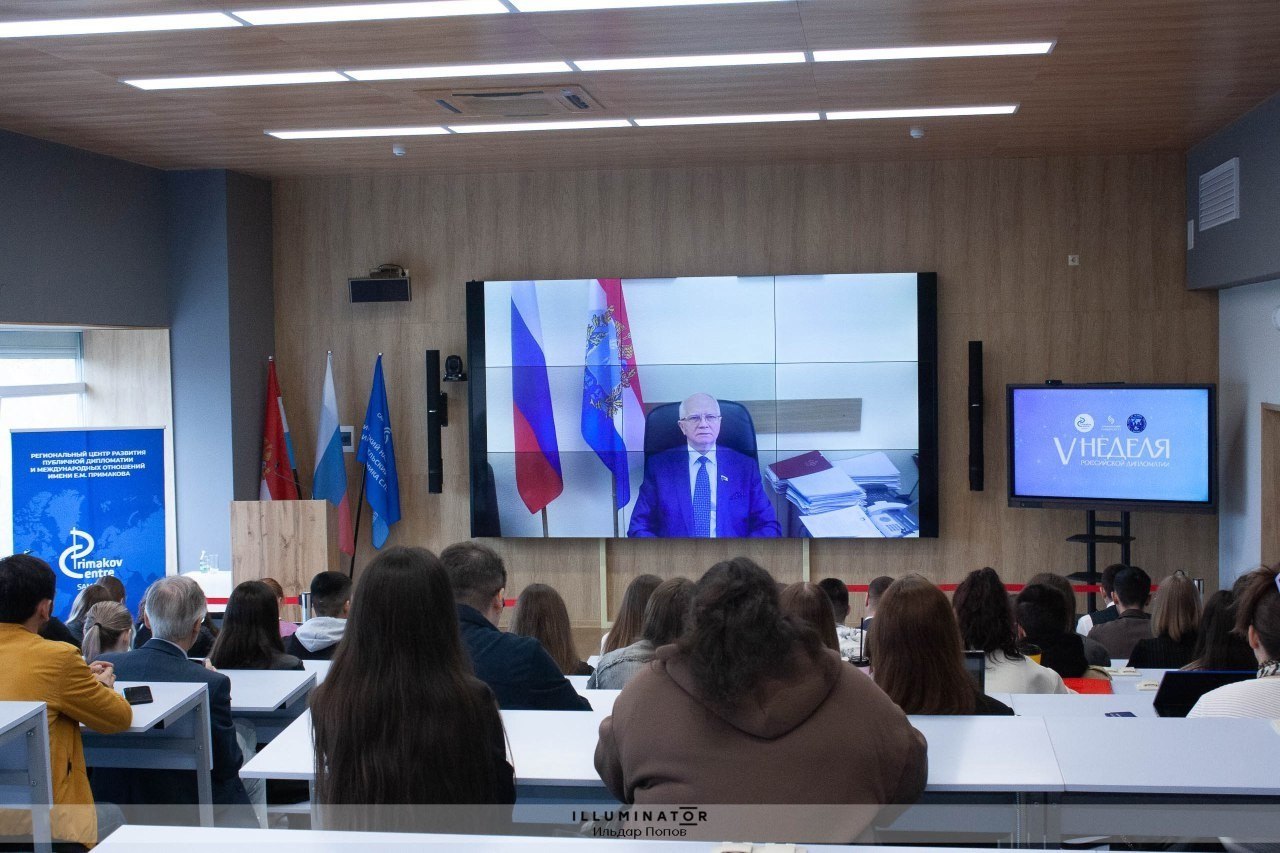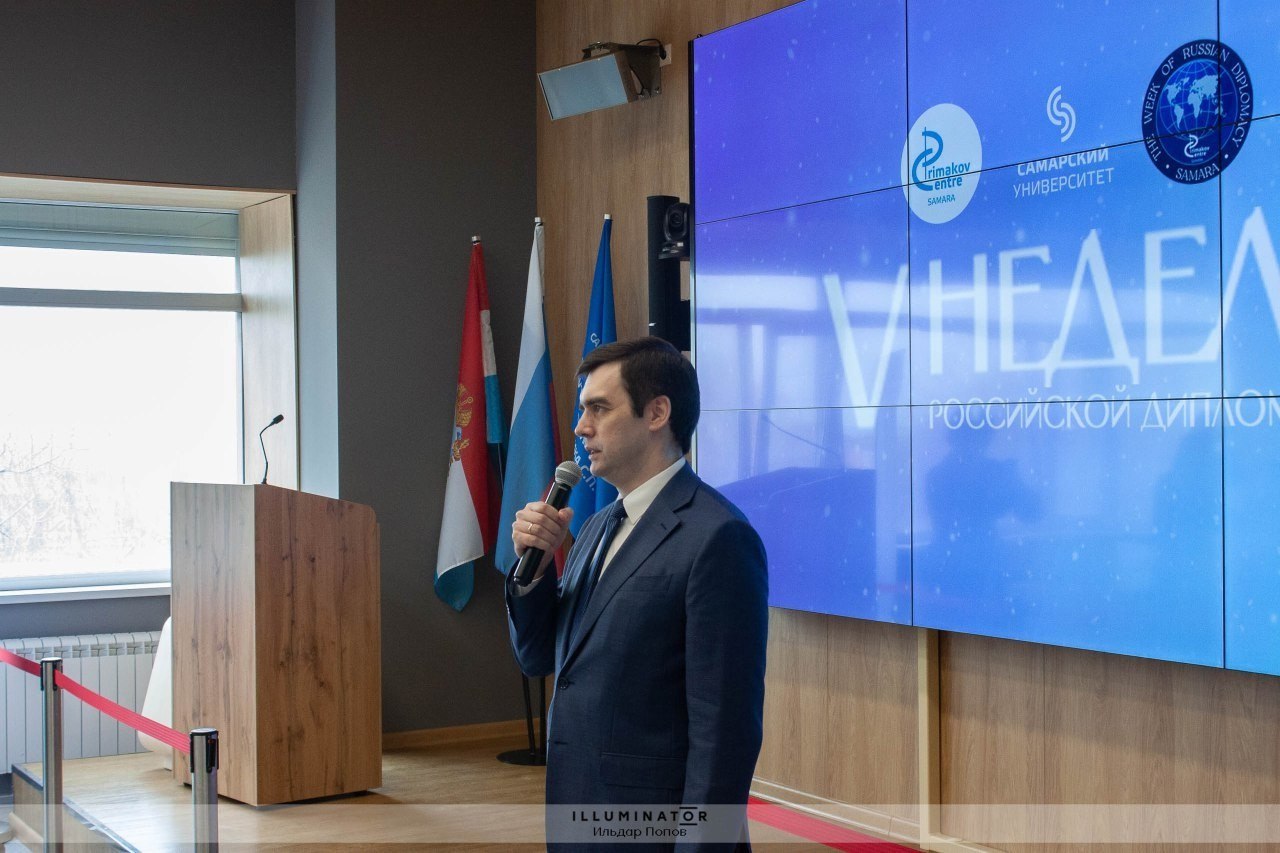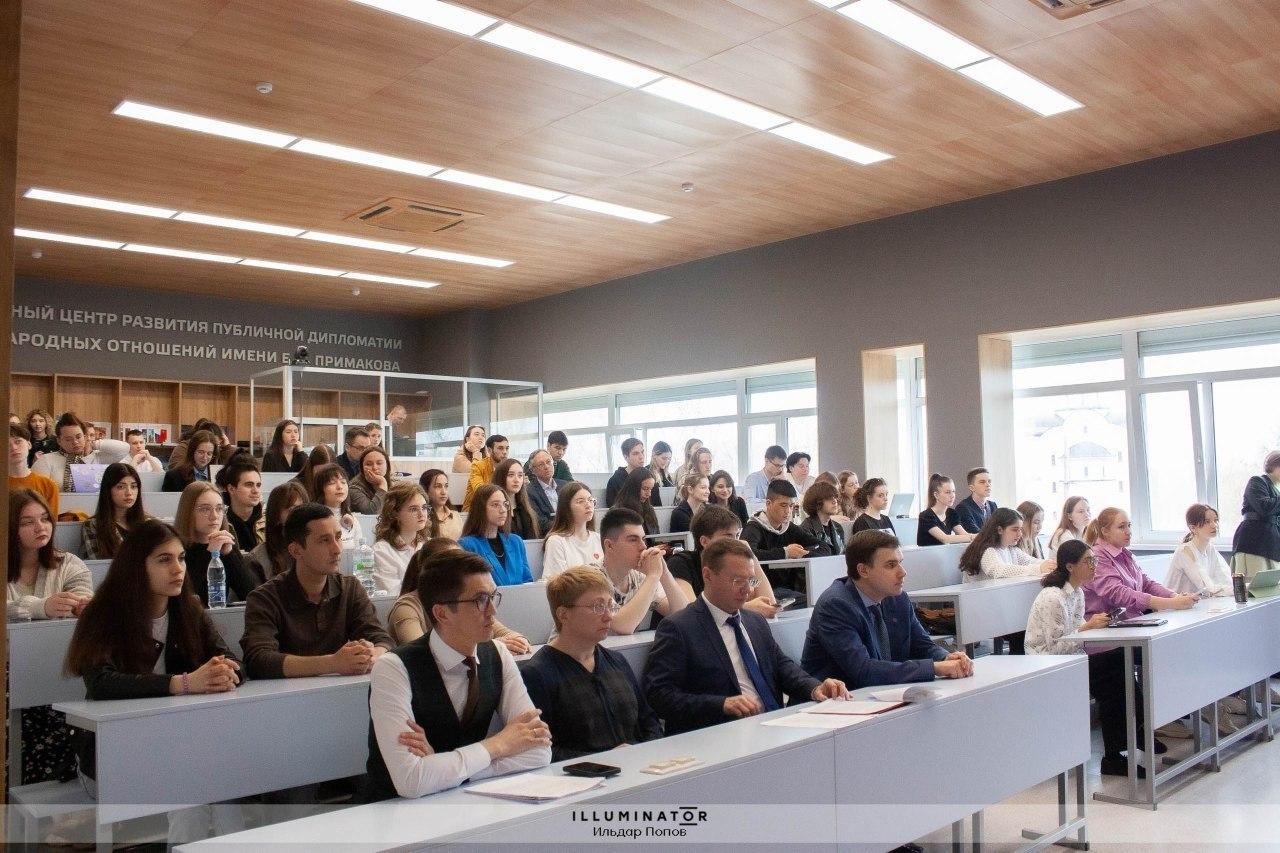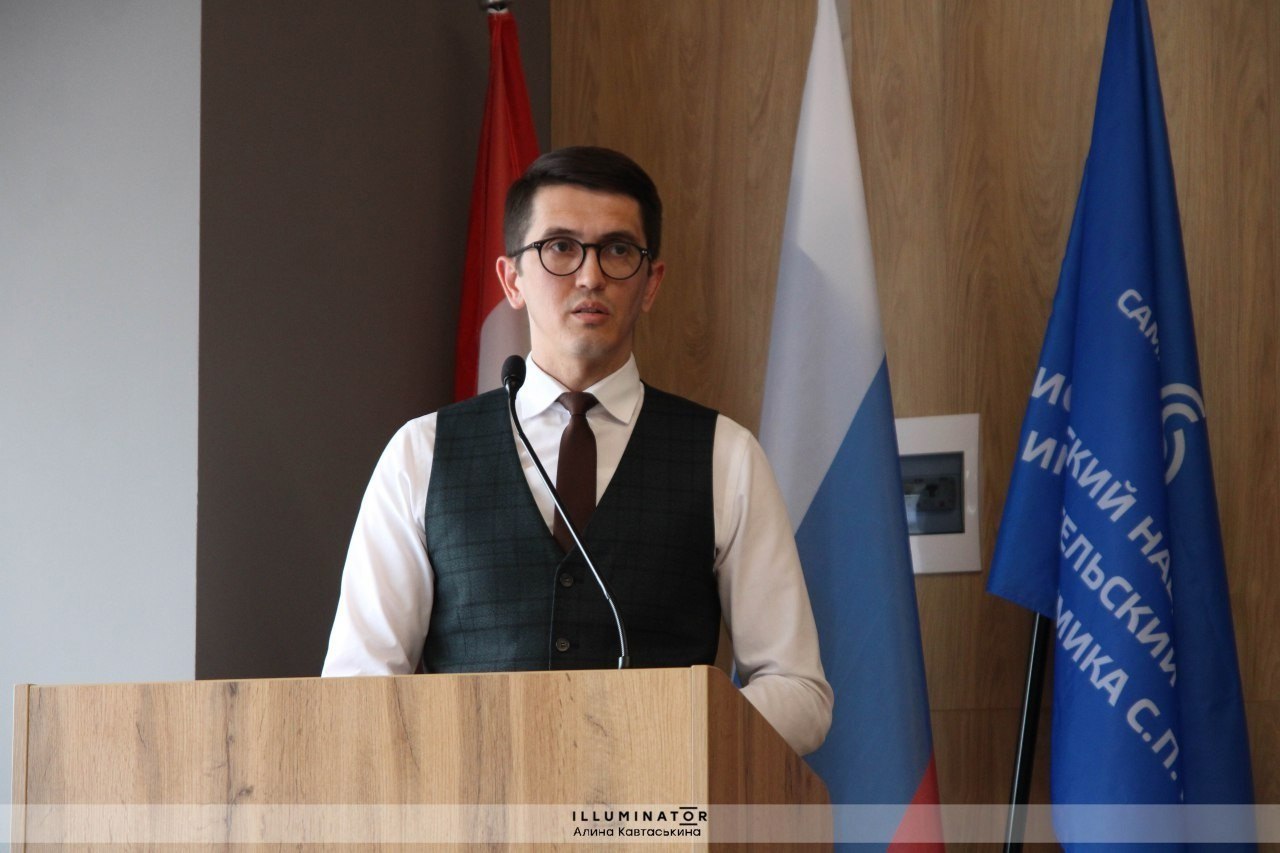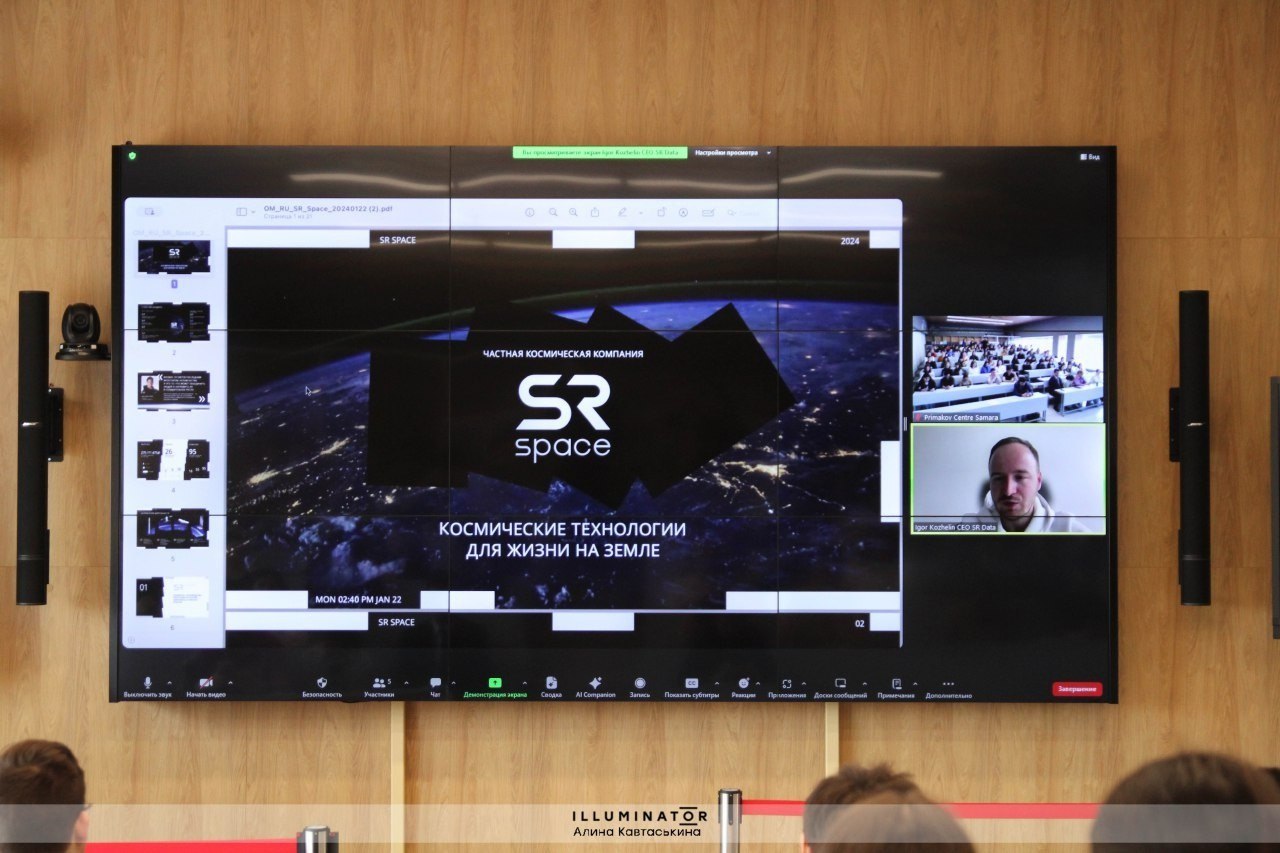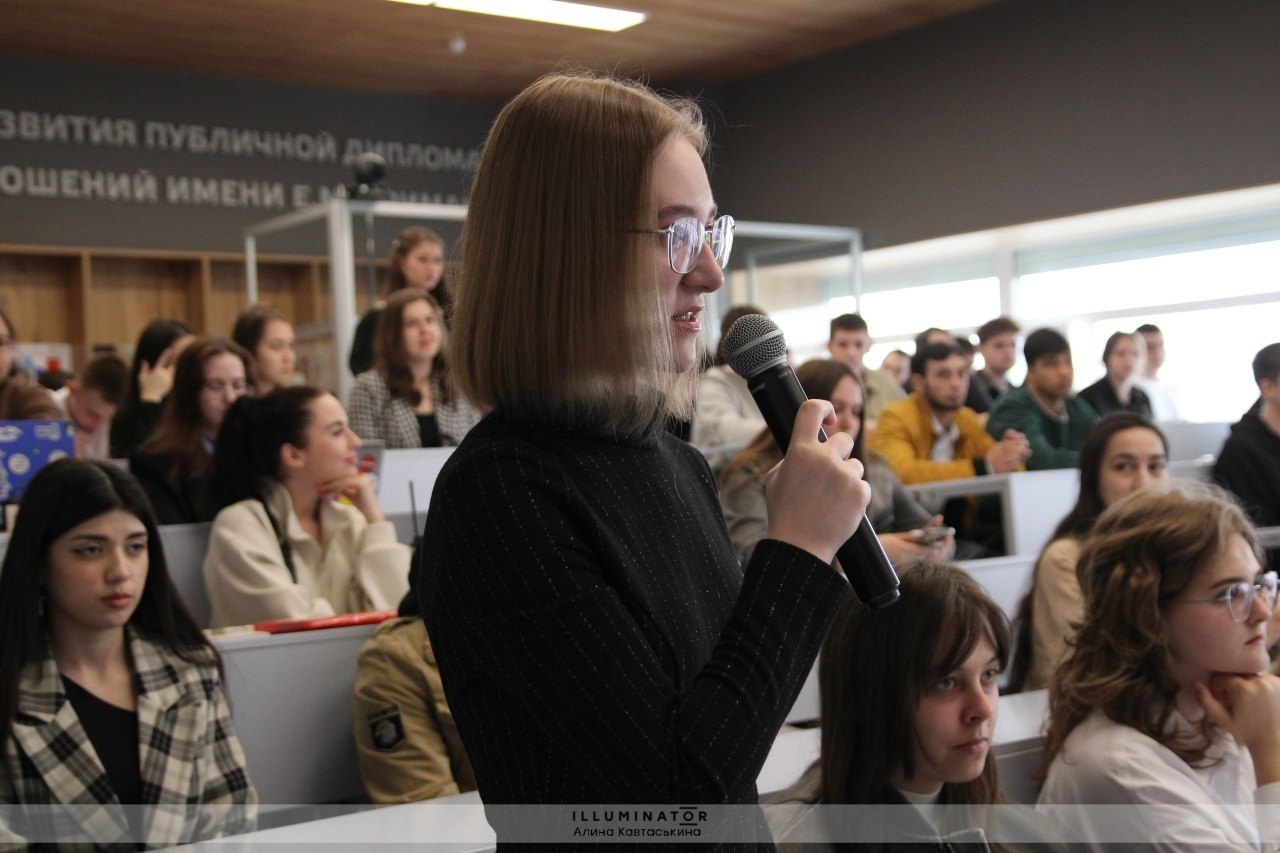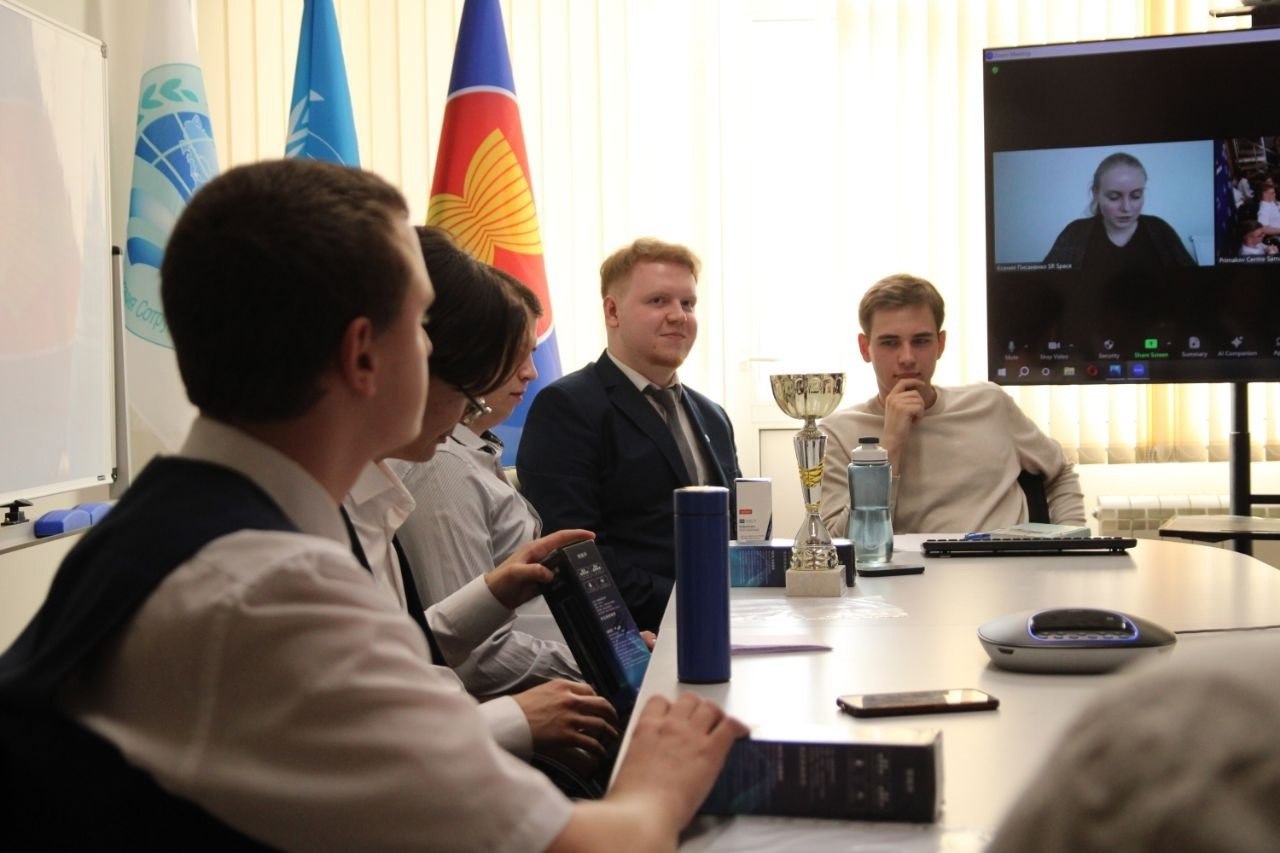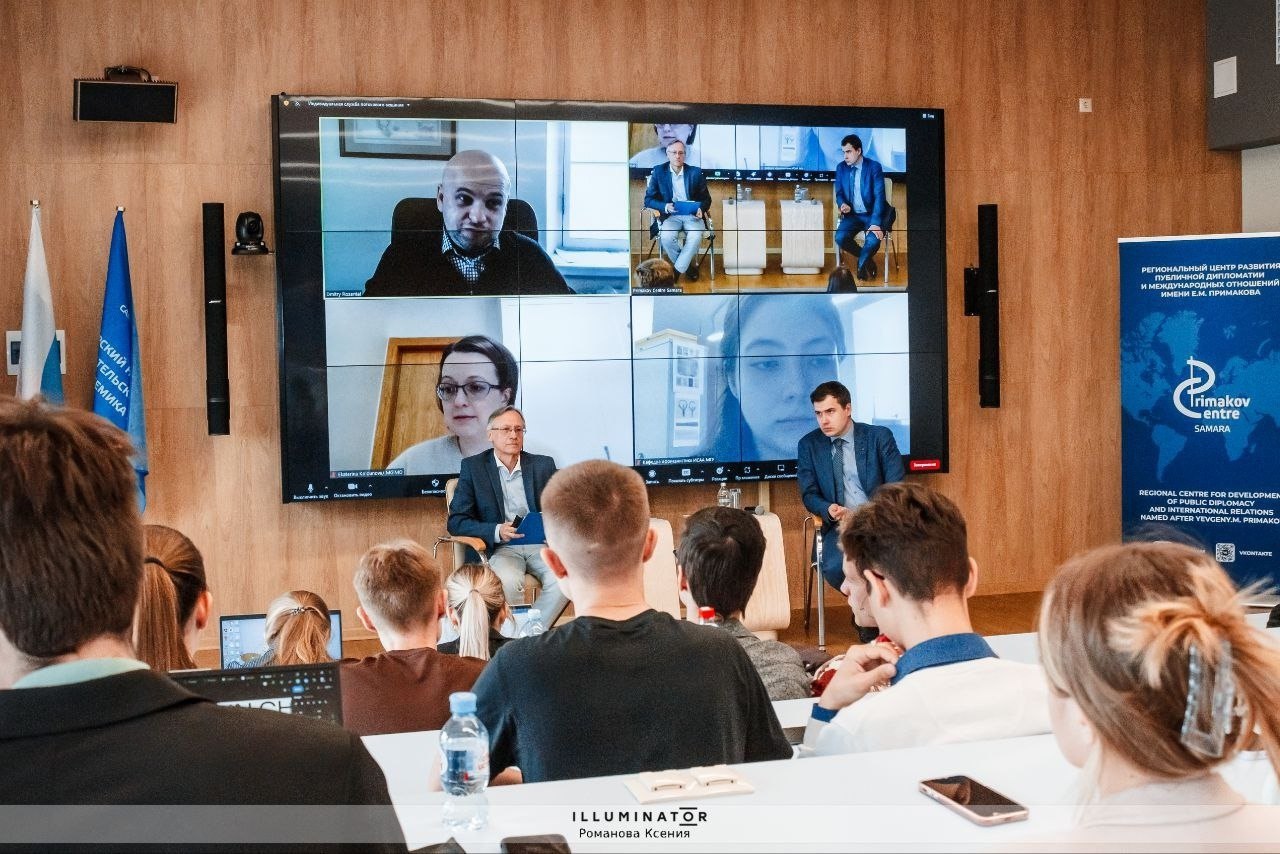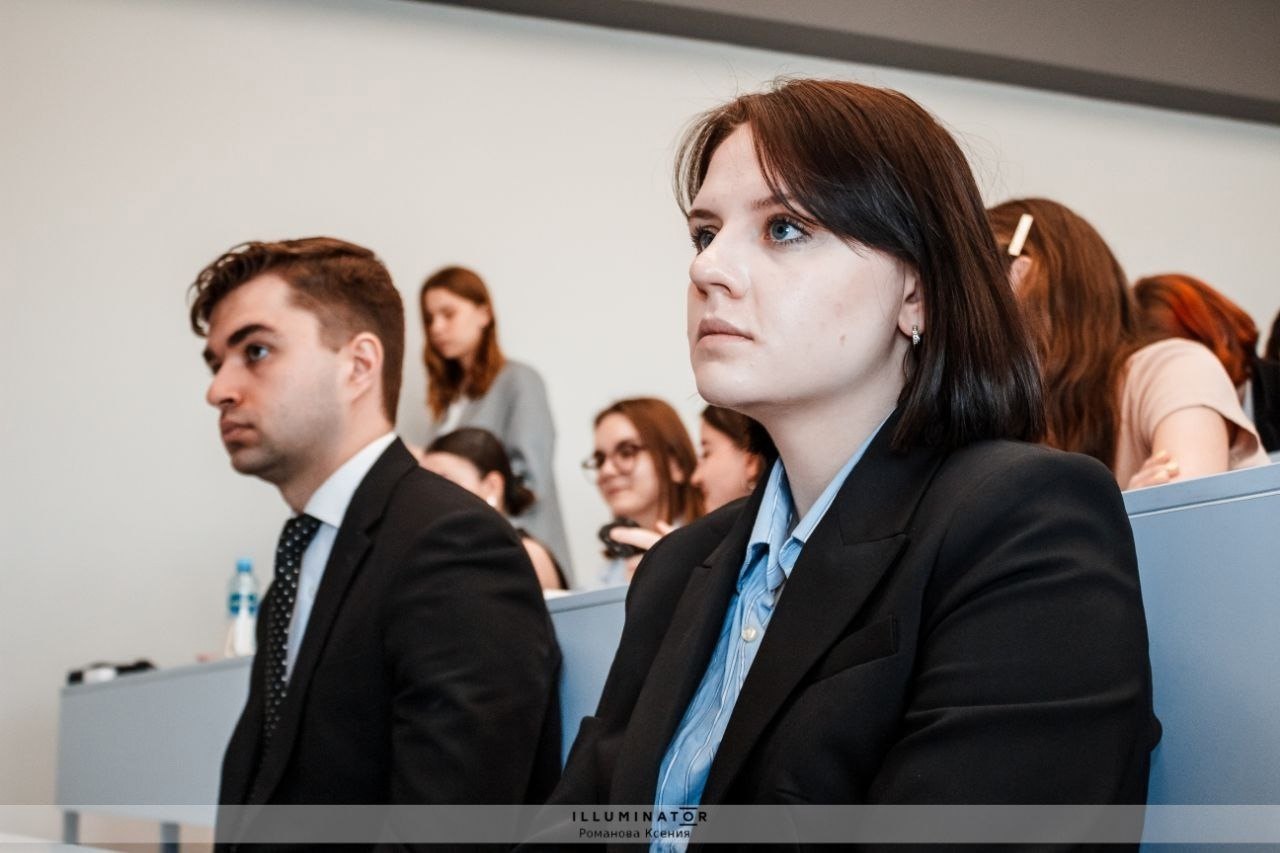Outer space is an incredibly important area of activity for many countries and organizations. For achieving common goals and solving complex problems, many aspects of space activities require collaboration of various countries and organizations. Nevertheless, there is no way of avoiding competition between the states in terms of achieving dominance in outer space.
As part of the Week of Diplomacy, the 2nd Scientific Conference with International Participation “International (Dis-)Order: Past, Present and Future”, dedicated to outer space diplomacy issues, was held in Russian and English.
Mikhail Leonov, Vice-Rector for Educational Work and Youth Policy at Samara University, addressed the event participants with his welcoming speech: “The opportunities to open up to you, students, are unique, and you should fully use them”.
In his speech, Farit Mukhametshin, Deputy Chairman of the Federation Council Committee on International Affairs, emphasized importance of regulating outer space diplomacy. It is impossible to achieve progress without working together, therefore, space development can become for countries an instrument not of separation, but of unification.
Farit Mubarakshevich noted that the Samara Region is one of leaders in development of the Russian space sector, because it was the booster-rocket made in Samara that launched Yury Gagarin into space.
“Our region rightfully holds the honorary status of the space capital of Russia. It was the booster-rocket made in Samara that launched the first manned spacecraft with Yury Gagarin on board. It is here where rockets, engines, and various space satellites are produced. In Samara, we also train a number of specialists for these high-tech enterprises”, concluded Farit Mubarakshevich.
Tatyana Tishchenko, Director of the Department of International Cooperation at the Roscosmos State Corporation, stressed that international cooperation is of great importance for the process of space exploration, and the prime example of it is the International Space Station.
Various projects, including the Russian-Chinese initiative on establishing the research lunar station, contribute to formation of new global centers, as well as support the hope that the outer space will not turn into the place of struggle.
Vladimir Valerievich Kuznetsov, Director of the UN Information Centre in Moscow, noted that, despite all the hardships, outer space exploration is considered by the UN as the most important sector, and the Week of Russian Diplomacy is a significant step forward in restoring trust and dialogue between countries on outer space exploration and development of scientific and technical collaboration in the field of outer space:
“Recently, humanity has been teetering on the brink of the most negative scenarios. Our efforts are aimed at ensuring that everyone has enough common sense and intelligence to avoid the most negative consequences. There is nothing to replace the UN, because its legitimacy is unique, and it is worth a lot”, stressed Vladimir Valerievich.
There were two sections at the Conference:
- Issues of safety and legal regulation of outer space.
- Is outer space a field of international collaboration or competition?
Our foreign colleagues also joined the events of the Week, namely: Chzho Zo E, Doctor of Technical Sciences, Honorary Professor of the Centre for Informatics and Satellite Technology of Myanmar (Myanmar), Bethlehem Nigussi, Deputy CEO at Space Science and Geospatial Institute (Ethiopia), Moussa Hosin (Algeria), postgraduate student of Moscow Institute of Physics and Technology (MIPT).
In the framework of the first day of the 5th Week of Russian Diplomacy, Andrey Evseenko, Candidate of Political Sciences, Deputy Director for Science at ISKRAN (Institute for US and Canadian Studies, the Russian Academy of Sciences), gave an open lecture on topical issues related to the US foreign policy.
The second day of the 5th Week of Russian Diplomacy was opened by Kira Viktorovna Tabunova and Mikhail Gennadievich Stepanishchev, experts from the ASEAN Centre at MGIMO of the Ministry of Foreign Affairs of Russia, who conducted a master class for students on writing scientific articles.
The final third day began with the Round Table “Regions of the World in Conditions of Turbulence” to be participated by leading domestic and foreign experts in the field of international relations:
- Director of ILA RAS, Candidate of Historical Sciences Dmitry Mikhailovich Rosenthal;
- Deputy Director for Science ISKRAN, Candidate of Political Sciences Andrey Sergeevich Evseenko;
- Director of the ASEAN Centre at MGIMO of the Ministry of Foreign Affairs of Russia, Candidate of Political Sciences Ekaterina Valeryevna Koldunova;
- Senior Lecturer at the Department of African Studies of the Institute of Asian and African Countries, Lomonosov Moscow State University, Mary Rafaelevna Avdalyan;
- Associate Professor at Samara University’s Department of General History, International Relations and Documentation, Candidate of Historical Sciences Aleksander Borisovich Okun (moderator).
Text: Guzyalia Shakurova, gr. mon. 5101-460401D
 RU
RU  EN
EN  CN
CN  ES
ES 
